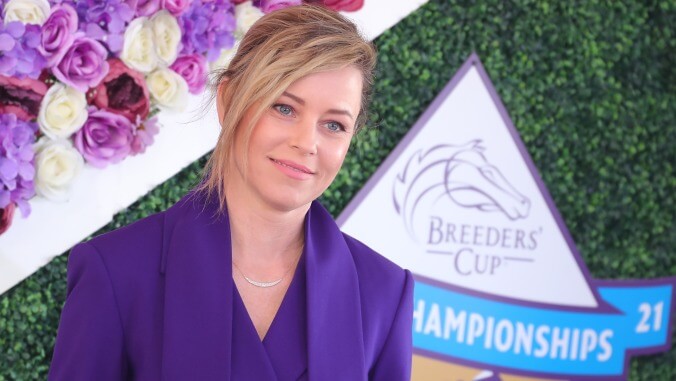Elizabeth Banks Photo: Leon Bennett
There are many pitfalls on the road to a good remake; Elizabeth Banks, who directed 2019's ill-fated Charlie’s Angels reboot, may know this better than anyone. But ahead of her return to the director’s chair for the upcoming abortion drama Call Jane, a specific set of qualms about the film’s reception still ring clear. As Banks tells The New York Times in a new interview (after some slight hedging), she felt Charlie’s Angels was pigeonholed as a movie “just for girls”— not the kind of action film Banks had thought she was making.
“Let me say I’m proud of the movie,” Banks begins, after some slight hedging and a suggestion she may be “in trouble” for her comments. “It was an incredible experience.”
But, Banks laments, there’s a definite but. “It was very stressful, partly because when women do things in Hollywood it becomes this story,” she explains. “There was a story around Charlie’s Angels that I was creating some feminist manifesto. I was just making an action movie.”
Banks continues: “ I would’ve liked to have made Mission: Impossible, but women aren’t directing Mission: Impossible. I was able to direct an action movie, frankly, because it starred women and I’m a female director, and that is the confine right now in Hollywood. I wish that the movie had not been presented as just for girls, because I didn’t make it just for girls. There was a disconnect on the marketing side of it for me.”
The director also plainly recalls the demeaning forms of doubt she experienced from producers who didn’t see her as enough of an industry heavyweight to handle an action movie.
“I was told by a big producer of big action movies that I couldn’t direct action, that male actors were not going to follow me,” Banks says. “He was flummoxed at the idea that a woman would be able to lead The Rock on a C.G.I. screen, I guess? That was said by someone with a lot of power in our industry to my face.”
Although Banks doesn’t mince words about her experiences, she’s also careful to stress her story doesn’t represent “all women in Hollywood who are doing interesting things.” Just as she’s not a spokesperson for that conglomerate, Banks also doesn’t think her position in a “rarified category” of female actor-directors implores her to solve Hollywood.
“It’s a male-dominated industry. It’s a male-dominated world. That’s what I’m up against, but I can’t solve it and I don’t really want to analyze it. It’s not interesting to me,” Banks explains. “It puts me, frankly, in a position where the studio head is going to read it in The New York Times and be like, ‘Wow, that Liz Banks has got a lot to say.’ I don’t need that added pressure. I truly feel that it’s dangerous to talk about these things now.”

